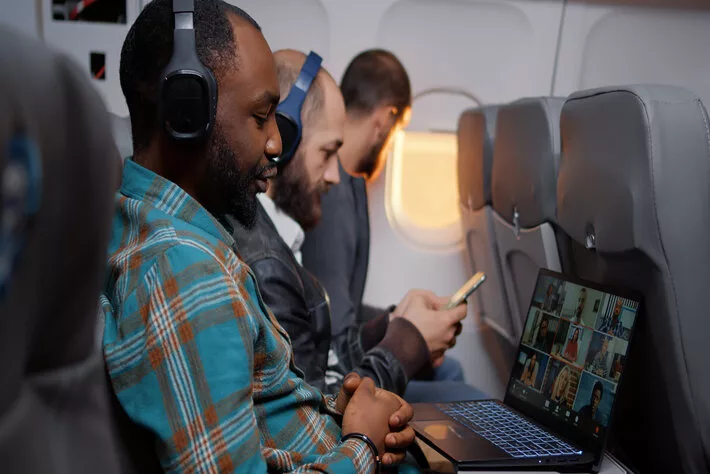Viasat and Deutsche Telekom have announced a new, long-term agreement that binds the companies’ commitment to providing in-flight connectivity (IFC) formula to airline partners across the European Aviation Network (EAN). EAN launched in 2019, powered by Deutsche Telekom and Inmarsat, a business recently acquired by Viasat.
EAN combines S-band satellite coverage with a complementary ground component network operated by Deutsche Telekom. EAN allows travellers in Europe to benefit from an advanced IFC experience for most intra-European flights, including broadband services that support high bandwidth-demanding applications such as streaming. Deutsche Telekom operates more than 300 EAN sites in 30 countries across Europe, providing substantial infrastructure across the continent.
EAN uses small, low-weight, and low-drag terminals, which can be installed on an aircraft in a matter of hours. This provides cost savings while supporting sustainability initiatives and carbon reduction.
Since 2019, more than 140 million passengers have had the opportunity to connect in-flight through the EAN connectivity solution. EAN is now available on more than 290 aircraft across various airlines, including Iberia, British Airways, Vueling, and AEGEAN.
“Viasat remains fully committed to EAN, now part of our global service offering in aviation,” said Shameem Hashmi, a vice president of aviation strategy at Viasat. “The EAN in-flight connectivity solution is the right solution for certain fleets in Europe. We look forward to welcoming more airline partners to the network so that additional passengers across Europe can benefit from a world-class in-flight connectivity experience.”
“The signing of today’s long-term agreement is a significant milestone for the continuation of EAN,” said David Fox, a vice president of inflight and connectivity services at Deutsche Telekom. “Through operation and maintenance of the complementary ground component network, Deutsche Telekom will foster the continued growth of the service to reach more airlines and passengers, allowing them to stay connected throughout their travels within Europe.”
Comment on this article below or via X: @VanillaPlus






